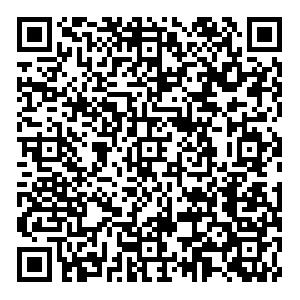|
[1]
|
陈振华. (2014). 批判性思维培养的模式之争及其启示. 高等教育研究,35(9),56—63.
|
|
[2]
|
董毓. (2012). 批判性思维三大误解辨析. 高等教育研究,33(11),64—70.
|
|
[3]
|
简成熙. (2019). 彼得斯对教育内在性目的之论证及其相关评析. 教育学术月刊,(1),3—15.
|
|
[4]
|
简成熙. (2020a). 批判式思维与建构式思维的可能: 来自女性主义的反思. 教育学术月刊,(5),3—15.
|
|
[5]
|
简成熙. (2020b). 重构自主性作为教育目的: 中西耻感取向的积极意义. 湖南师范大学教育科学学报,19(2),64—77.
|
|
[6]
|
简成熙. (2021). 批判式思维是否是普遍性思维能力?环绕 McPeck 的相关论辩. 山西大学学报(哲社版),44(1),85—97.
|
|
[7]
|
教育哲学编写组. (2019). 教育哲学. 北京市: 高等教育出版社, 121-127.
|
|
[8]
|
彭正梅、邓莉. (2017). 迈向教育改革的核心: 培养作为21世纪技能核心的批判性思维技能. 教育发展研究,(24),57—63.
|
|
[9]
|
钱颖一. (2018). 批判性思维与创造性思维教育: 理念与实践. 清华大学教育研究,2(1),63—97.
|
|
[10]
|
苏慧丽、于伟. (2019). 否定性—儿童批判思维培养的前提问题. 教育学报,15(4),26—34.
|
|
[11]
|
温明丽. (1998). 批判性思考教学—哲学之旅. 台北: 师大书苑.
|
|
[12]
|
武宏志. (2004). 论批判性思维. 广州大学学报(社会科学版),3(11),10—16.
|
|
[13]
|
岳晓东. (2000). 批判思维的形成与培养. 教育研究,(8),65—69.
|
|
[14]
|
钟启泉. (2020). 批判性思维: 概念界定与教学方略. 全球教育展望,49(1),3—16. doi: 10.3969/j.issn.1009-9670.2020.01.001
|
|
[15]
|
Bailin, S. (1995). Is critical thinking biased? Clarifications and implications. Educational Theory, 45(2), 191—197. doi: 10.1111/j.1741-5446.1995.00191.x
|
|
[16]
|
Cuypers, S. E. (1992). Is personal autonomy first principle of education?. Journal of Philosophy of Education, 26(1), 5—17. doi: 10.1111/j.1467-9752.1992.tb00260.x
|
|
[17]
|
Cuypers, S. E. (2004). Critical thinking, autonomy and practical reason. Journal of Philosophy of Education, 38(1), 75—90. doi: 10.1111/j.0309-8249.2004.00364.x
|
|
[18]
|
Dearden, R. F., Hirst, P. H., & Peters, R. S. (eds.) (1972). Education and the development of reason. London: RKP.
|
|
[19]
|
Dewey, J. (1966). Democracy and education. New York: The Free Press.
|
|
[20]
|
Dworkin, R. (1978). Liberalism. In S. Hampshire(ed.), Public and private morality (113-143). Cambridge: Cambridge University Press.
|
|
[21]
|
Ennis, R. (1962). A concept of critical thinking. Harvard Educational Review, 32(1), 81—111.
|
|
[22]
|
Galston, W. A. (1991). Liberal purposes: Goods, virtues, and diversity in the liberal state. Cambridge: Cambridge University Press.
|
|
[23]
|
Galston, W. A. (1995). Two concepts of liberalism. Ethics, 105, 516—534. doi: 10.1086/293725
|
|
[24]
|
Garrison, J. (1999). Dangerous dualisms in Siegel’s theory of critical thinking: A Deweyan Pragmatist responds. Journal of Philosophy of Education, 33(2), 213—231. doi: 10.1111/1467-9752.00132
|
|
[25]
|
Gutmann, A. (1987). Democratic education. Princeton: Princeton University Press.
|
|
[26]
|
Hare, W. (1999). Critical thinking as an aim of education. In R. Marples(ed.) The aims of education (85−99). New York and London: Routledge.
|
|
[27]
|
Kymlicka, W. (1989). Liberalism, community, and culture. Oxford: Clarendon.
|
|
[28]
|
Kymlicka, W. & Norman, W. (1995). Return of the citizen: A survey of recent work on citizenship theory. In R. Beiner(ed.). Theorizing citizenship (283−322). Albany: State University of New York Press.
|
|
[29]
|
Kymlicka, W. (1996). Multicultural citizenship: A liberal theory of minority rights. Oxford: Clarendon.
|
|
[30]
|
McLaughlin, T. H. (1992). Citizenship, diversity and education: A philosophical perspective. Journal of Moral Education, 21(3), 235—250. doi: 10.1080/0305724920210307
|
|
[31]
|
McPeck, J. E. (1981). Critical thinking and education. Oxford: Martin Robertson.
|
|
[32]
|
Peters, R. S. (1973). The justification of education. In R. S. Peters (ed.). Philosophy of education (239−267). Oxford: Oxford University Press.
|
|
[33]
|
Paul, R. (1993). Critical thinking: What every person needs in a rapidly changing world. Santa Rosa, Calif.: Foundation for critical thinking.
|
|
[34]
|
Rawls, J. (1993). Political liberalism. New York: Columbia University Press.
|
|
[35]
|
Scheffler, I. (1960). The language of education. Springfield, Illinois: Charles C. Thomas.
|
|
[36]
|
Scheffler, I. (1965). Conditions of knowledge: An introduction to epistemology and knowledge. Glenview, Illinois: Scott, Foresman and company.
|
|
[37]
|
Scheffler, I. (1973). Reason and teaching. London: Routledge & Kegan Paul.
|
|
[38]
|
Siegel, H. (1988). Educating reason: Rationality, critical thinking, and education. New York: Routledge.
|
|
[39]
|
Siegel, H. (1997). Rationality redeemed? Further dialogues on an educational ideal. New York: Routledge.
|
|
[40]
|
Siegel, H. (2017). Education’s epistemology: Rationality, diversity, and critical thinking. Oxford: Oxford University Press.
|
|
[41]
|
Steutel, J. & Spiecker, B. (1999). Liberalism and critical thinking: on the relation between a political ideal and an aim of education. In Marples, R. (ed.). The aims of education (61−73). London: RKP.
|
|
[42]
|
Waldron, J. (1993). Liberal rights: Collected papers 1981—1991. Cambridge: Cambridge University Press.
|
|
[43]
|
White, J. (1973). Towards a compulsory curriculum. London: Routledge & Kegan Paul.
|
|
[44]
|
White, J. (1982). The aims of education restated. London: Routledge & Kegan Paul.
|
|
[45]
|
White, J. (1991). Education and the good life: Autonomy, altruism and the National curriculum. New York: Teachers College Press.
|

 点击查看大图
点击查看大图




 下载:
下载: